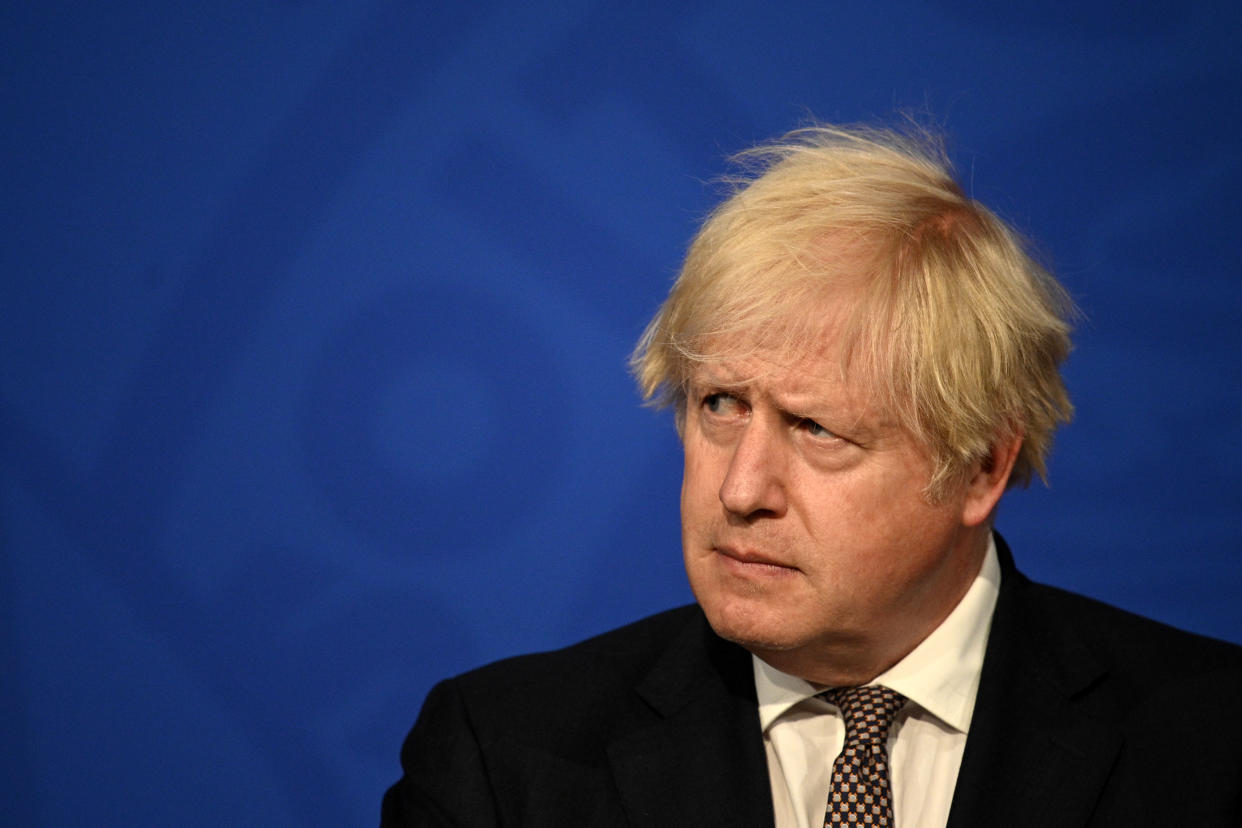Boris Johnson advised 115,000 could die if 19 July unlocking goes ahead

Lifting lockdown restrictions on 19 July will lead to a new wave of infections that could result in more than 115,800 deaths in a year, scientists advising Boris Johnson have warned.
Modelling carried out for the government’s Sage advisory group by Imperial College London concluded that the worst-case scenario arising from the PM's decision to press on with Stage 4 of the lockdown roadmap could be 115,800 deaths by June 2022.
The authors were clear that the projections are highly uncertain due to unknown factors, such as how well vaccines protect against deaths from COVID and how much people will mix after restrictions are lifted.
The most optimistic scenario in Imperial College's model found that there could be fewer than 10,000 deaths as a result of Stage 4 lockdown easing.

Separate modelling carried out by the London School of Hygiene and Tropical Medicine warned that lifting lockdown could cause 46,000 deaths between 1 July and 31 December.
Again, the authors warned that the outcome is highly uncertain, with the lower estimate of deaths following Stage 4 standing at 9,000, depending on how long immunity lasts and how far the public returns to life as normal.
Watch: Boris Johnson says ending of restrictions is not an excuse for a 'jubilee'
While there is significant uncertainty regarding the number of deaths, scientists on the government's Scientific Pandemic Influenza Group on Modelling (Spi-m-o), which feeds into Sage, agree there will be a large wave of infections after 19 July.
Read more:
'Devastating': World Health Organization's horror at scenes of mass crowds during Euro 2020 final
COVID pandemic will 'worsen' and it's 'dangerous' to return to normal, warn experts
In a paper presented to ministers on 7 July and published today, Spi-m-o experts wrote: "All models show a period of extremely high prevalence of infection lasting until at least the end of August.
"There is high uncertainty around both the scale of the peak in prevalence and in the number of confirmed cases that this would correspond to.
"This would also depend on people's willingness to be tested and, potentially, on capacity to test them."
The prime minister confirmed on Monday that England's coronavirus restrictions will be lifted on 19 July.
Social distancing rules will be scrapped, venues such as nightclubs will be able to reopen, and masks will no longer be legally required in shops, in crowded places and on public transport.
Johnson however urged people not to act as though COVID had disappeared, handing responsibility for keeping the virus under control to members of the public.
He said: “It is absolutely vital that we proceed now with caution and I cannot say this powerfully or emphatically enough: this pandemic is not over.
“This disease, coronavirus, continues to carry risks for you and your family.
“We cannot simply revert instantly from Monday July 19 to life as it was before COVID.
“We will stick to our plan to lift legal restrictions and to lift social distancing, but we expect and recommend that people wear a face covering in crowded and enclosed spaces where you come into contact with those you don’t normally meet, such as on public transport.”
The PM is no longer saying the end to restrictions will be irreversible amid the fears of a huge wave of infections this summer.
Health secretary Sajid Javid has admitted infections could rise to 100,000 a day after rules are lifted.
Speaking alongside the prime minister on Monday, Professor Chris Whitty told the public to “take this really steadily”.
England’s chief medical officer said: “Inevitably, everybody who works in the NHS – and indeed everybody who might use it or has friends or relatives who might use it – is going to want to keep the numbers of cases right down.
“That is one of the many reasons why we really want to urge people to take this really steadily because that’s the way to keep the numbers down, to keep the pressure on the NHS lower and make the possibility of clearing this number of cases much easier.”
Watch: Chris Whitty says next peak will be lower but NHS will still be under pressure



